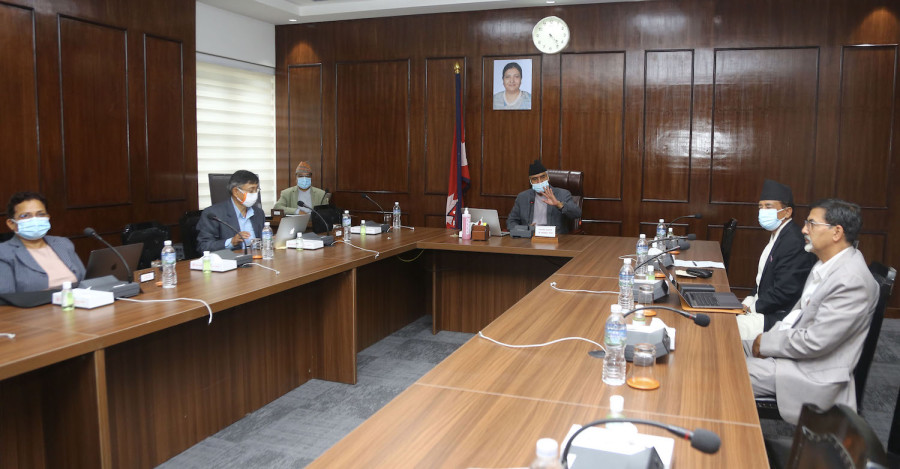Editorial
Expanding the Cabinet
Sorry folks, there aren't enough ministerial berths to go around.
Sher Bahadur Deuba is known to be the most generous prime minister of all time when it comes to giving ministerial berths to his partymen as well as his coalition partners. He appointed 50 ministers and ministers of state when he was prime minister in 2017, breaking all records, while 21 years earlier in 1996, he had appointed 48 ministers as if the ministerial berths and the expenses that come associated with them were being borne out of his pocket. Deuba would certainly like to surpass his past record owing to the hordes of ministerial aspirants he has to placate, but his hands are tied this time by the constitution, as it allows only 25 cabinet ministers.
With the constitutional limitation in place, Deuba seems to be in no position to hand out ministerial berths to the manifold hopefuls within his party as well as his coalition partners. Not only did the overwhelming majority vote of confidence support his rise to power, but it is also seemingly bogging Deuba down as he scrambles to award ministerial berths to his coalition partners. More than a week after his appointment, he has not been able to expand his five-member Cabinet. His inability to fulfil the expectations of disparate coalition partners in the government is apparent in his failure to appoint a health minister even as the country fights the coronavirus pandemic.
Reportedly, the initial understanding was that the partners would get one Cabinet position for every 10 lawmakers. But the ratio has come down to one for eight as the number of aspirants grew. There is no dearth of leaders within the Congress asking for the position of deputy prime minister as well as ministerial berths for themselves or their henchmen. Samajbadi Party, which is yet to join the government pending the resolution of the party’s authentication issue which is unrelated to the coalition, is learnt to have demanded one Cabinet position for every six lawmakers.
Also in the fray is the Madhav Kumar Nepal faction of the CPN-UML which has not yet declared in clear terms whether it would like to join the government; however, having played a crucial role in ousting their partyman KP Sharma Oli and putting Deuba in his place, it would not be unnatural for the Nepal faction to stake its claim in the Cabinet. The lawmakers of the Oli faction of the UML who deserted him at the last minute to vote for Deuba are not to be forgotten either. This is not to forget the Maoist Centre, which has not only been a crucial partner in Deuba’s rise, but also the main driving force in the current coalition.
No wonder that the recently ousted prime minister KP Sharma Oli directed his barbs at Deuba the other day, calling his government a talatuli batuli or a patchwork of too many partners. No matter how many coalition partners he has, Deuba is the prime minister of a legitimate government now, and is expected to complete negotiations at the earliest. With just a year and a half of the current Parliament’s tenure and a medley of coalition partners that can withdraw their support anytime, there is little to be excited about who gets a certain portfolio or which faction of which party gets a certain number of berths in the Deuba administration. However, the least that Deuba can do at the moment is finish filling up the positions and get the government running at full capacity.




 25.15°C Kathmandu
25.15°C Kathmandu














